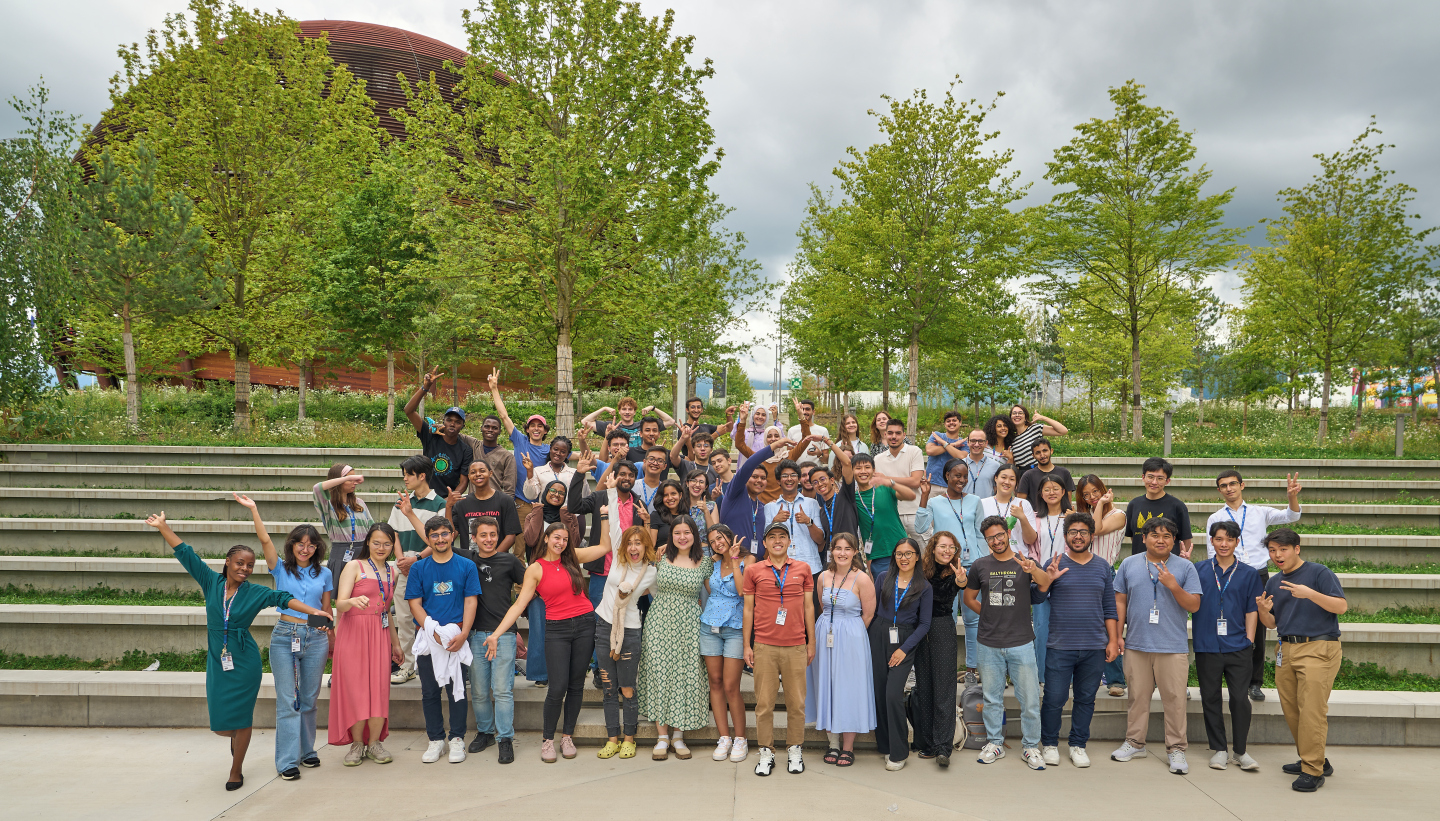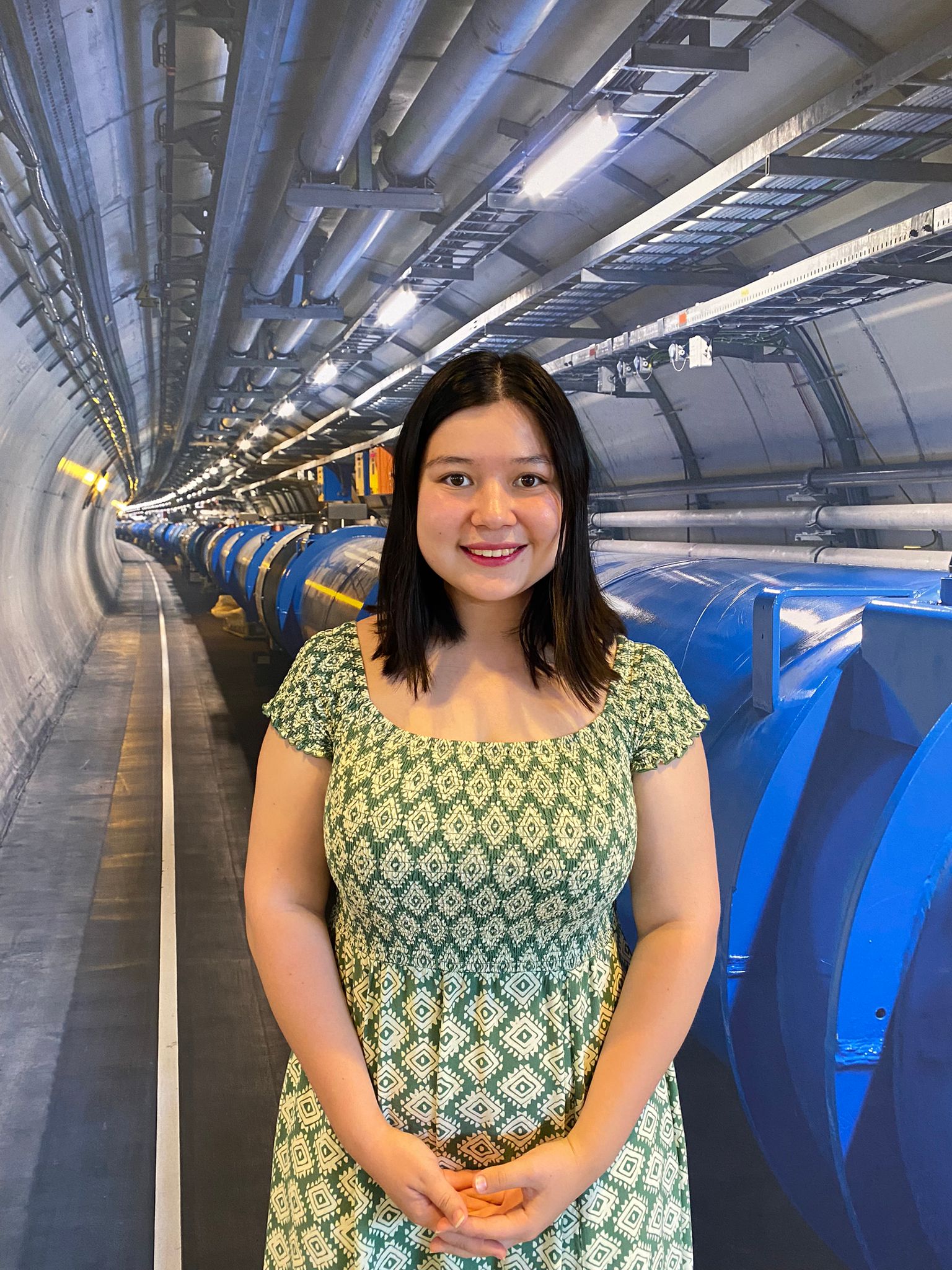
This article series is a part of a larger initiative by CERN & Society Foundation to inspire young girls and women in STEM careers and help aspiring scientists push existing boundaries. Our Women in STEM campaign aims to reduce the gap between dreaming and achieving fulfilling careers in science.
My name is Amina Sadu, a 21-year-old third-year undergraduate student in Theoretical Physics at Al-Farabi Kazakh National University in Kazakhstan.
In the 9th grade, I envisioned a future in the arts, particularly in film directing. However, everything changed when I discovered astrophysics. The subject captivated me entirely, leading me to delve deeper into the world of physics. By the end of 9th grade, I had chosen physics as my specialization. From there, my passion grew, fuelled by Olympiads, competitions, and scientific projects. The spark that was ignited in me back then continues to burn brightly today.
Throughout my journey, I’ve faced numerous challenges, many of which stemmed from societal pressures and gender stereotypes. Both women and men encounter these biases daily, and their cumulative impact is profound. When roles are imposed on children from a young age, they often grow up conforming to these expectations, perpetuating the cycle for future generations. I vividly remember a schoolteacher telling us that women couldn’t be good scientists because their brains supposedly "dry up" after the age of 25. I was so shocked by this audacity that I printed out pictures of great female scientists and prepared a presentation to debunk this myth. However, what struck me most was the silence of my female classmates—a silence that signified inaction, and inaction that allowed others to define our worth.
For women, this silence is an unacceptable luxury.

The existence of great female scientists is proof that this process is far from the norm. Despite the progress made in providing more opportunities for women in science, the situation hasn’t shifted as much. Stigma still lingers in science, politics, and everyday life, perpetuating the notion that men are more successful than women. These attitudes influence the younger generation, reinforcing harmful stereotypes. However, having role models like Hypatia, Marie Curie, Maria Goeppert-Mayer, and other brilliant women in science helps dismantle these biases. I am confident that in the future, more role models will emerge, proving that science knows no gender boundaries—the only limits are the ones we place on ourselves
During my time as a summer student at CERN, I experienced a profound sense of belonging. Surrounded by honest, open, and passionate individuals, I saw reflections of myself in them, and they saw the same in me. We were alike in some ways, yet different and extraordinary in others. Immersed in the life of scientists, where casual conversations over coffee led to profound discussions about scientific concepts, I realized that this is where I belong. This is the life I want to lead.
I am determined to continue my journey in theoretical physics and build a life around it. I hope to cross paths with the friends I've made at CERN many times in the future, whether at conferences or working together on ground-breaking discoveries.
If I can one day inspire a young girl to pursue a career in science, I would consider it the greatest achievement of all.
No matter what anybody tells you, words and ideas can change the world.